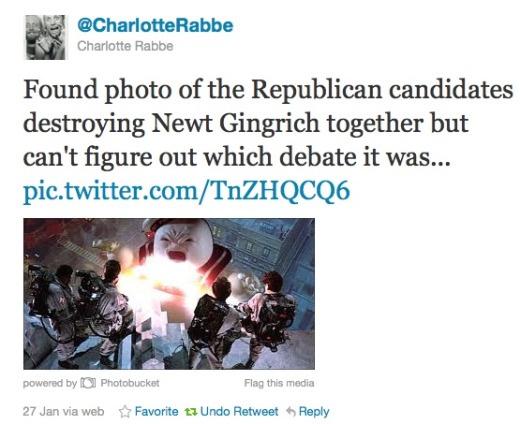With the exception of George W. Bush in 2000 and Gerald Ford in 1976, Republicans have historically nominated a candidate in the GOP Primary field who has run for president in the past. While the explanation of this phenomenon is unclear, many have suggested that the party tends to favor the candidate "next in line", or perhaps those who have run previously have achieved greater name recognition and thus they fare better the next time around. Whatever the reason, the GOP's "Laws of Ascention" have borne out in nearly every nomination battle since Eisenhower:
- 2008: John McCain (previously ran in 2000)
- 1996: Bob Dole (previously ran in 1988)
- 1988: George H. W. Bush (previously ran in 1980)
- 1980: Ronald Reagan (previously ran in 1976, and even in 1968)
- 1968: Richard Nixon (previously ran in 1960)
- 1964: Barry Goldwater (who had technically run previously, having challenged Nixon on the floor of the 1960 convention)
To be clear, the above list only includes the nominees when there was an open campaign for the nomination, not the reelection years of sitting republican president.
Since his loss to John McCain in 2008, many have cited this logic to speculate that Mitt Romney has a good chance in 2012. Mark Halperin stated this on Hardball on Friday that the GOP has, "always picked the person whose turn it is, and there's no one who's got a greater claim to that than Romney."
However, there is another potential candidate who would have a greater claim to that. Romney had secured a total of 271 delegates in the primaries when he withdraw in early February, whereas Mike Huckabee won 278 delegates -- Mike Huckabee was actually the runner-up in 2008. (In fact, after Huckabee's insurgent victory over Romney in Iowa, he came within striking distance of McCain in South Carolina, losing by only 3.3% in the Palmetto State).
While Huckabee hasn't indicated that he will run again in 2012, the Republican this theory would seem to also favor his candidacy -- but nobody appears to ever mention that -- pundits only refer to Romney in the context of the "next in line" argument.
What's also interesting about this theory is that Democrats rarely like candidates who have previously run --preferring dark horse candidates to those who have competed in a previous election cycle.
 Tuesday, January 31, 2012 at 2:40PM
Tuesday, January 31, 2012 at 2:40PM 
 Establishment,
Establishment,  GOP,
GOP,  Ghostbusters,
Ghostbusters,  Marshmellow Man,
Marshmellow Man,  NNewt Gingrich,
NNewt Gingrich,  Stay Puft,
Stay Puft,  Teamwork,
Teamwork,  attacking
attacking 
